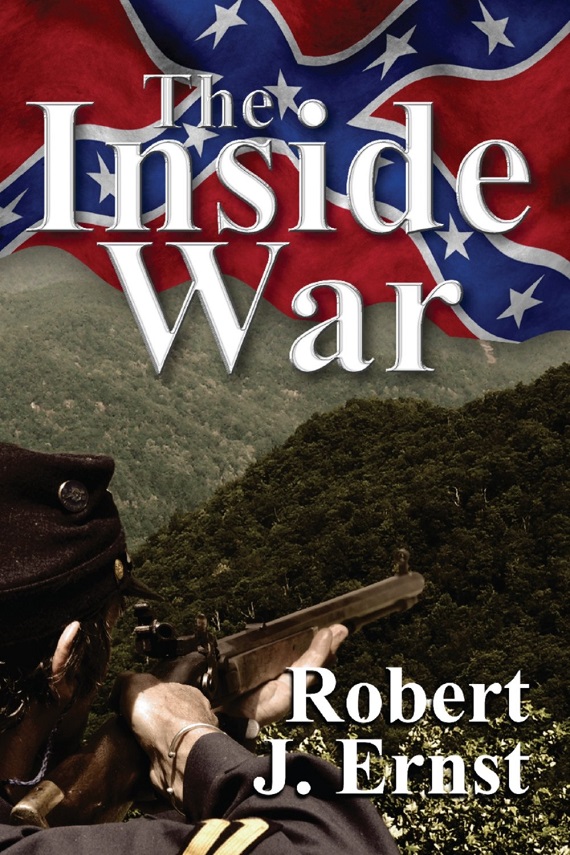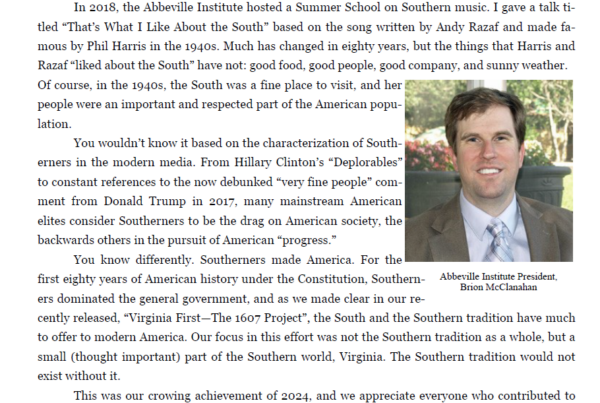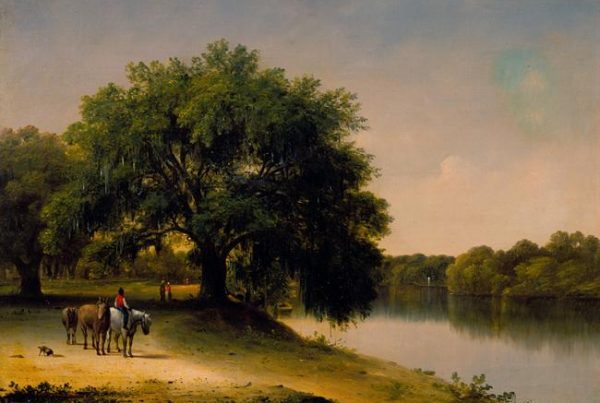Editor’s Note: This article was originally published at The Southern Literary Review and is an interview with author Robert J. Ernst by Allen Mendenhall covering Ernst’s book, The Inside War.
APM: Thanks for taking the time to sit down for this interview, Bob. Your novel The Inside War is about an Appalachian mountain family during the Civil War. How long have you been interested in the Civil War?
RJE: I have had an interest in the Civil War for many years. Specifically, the effect of the war on Appalachia became an interest as I researched family history, now more than a decade ago. I realized that not much had been written, outside of academic treatises, on this aspect of the war. Bushwhacking ambushes, bands of roving deserters, intensely opposed partisan factions, and a breakdown in civil society befell western North Carolina. Of course, much study had been given to the poverty of the area during the twentieth century, but not much, save bluegrass music, about its culture. What I discovered was a vibrant pre-war society thoroughly rent by the war. And, the area did not recover.
APM: The story of Will Roberts, your novel’s protagonist, is similar to that of many actual soldiers who fought for the Confederacy. How much historical research went into this book? It seems as if there are a number of events in your story—Sammy Palmer’s shooting of the sheriff, for instance—that track historical occurrences.
RJE: Much of the story is based on historical events. In fact, Will Roberts was a real person, as was his brother, Edwin. I traced their wartime adventures, researched the battles and conditions of their captivity and wove a fictional story around them. Likewise their wives, as portrayed in the story, were based on real people, although their story is more fictionalized. The novel does incorporate many historical characters and events that occurred in the vicinity of Marshall, North Carolina, by which I attempt to portray a picture of the character of the area and the severe impact of the war on it.
APM: There are some themes in the book that cover an aspect of the Civil War that is not often covered. Tell us about those.
RJE: The tactic of bushwhacking, or ambushing mountain patrols, is one. Guerrilla warfare as a matter of accepted tactics was new and was a terrifying degradation of the morality of warfare. There was a real cultural divide among the citizens of western North Carolina between those who supported the North, the “tories,” and those who supported the Confederacy. These divisions played out in many ways, most notably in atrocities like the Shelton Laurel massacre, but more subtly in familial and neighbor relationships. I doubt many women suffered as did those in Appalachia, from the depredations, theft and physical threat of the men who populated the mountains during the war. I was surprised to learn of the inhumane prison conditions at Ft. Delaware. Everyone knows of Andersonville, but not many are aware of Ft. Delaware. We know of the great Civil War battles, but there were scores of skirmishes every week that terrified the contestants and shaped their perceptions. Certainly, Roberts’s family suffered greatly, even though their war happened in the background to better known events.
APM: You seem careful not to glorify war but to present it as the complex tragedy that it is. The book’s epigraph states, “For those who have suffered war.” I wonder if the process of writing this book taught you anything about war itself. What do you think?
RJE: The grand histories of the conflicts, eulogizing the fallen and celebrating the victorious are all necessary parts of our remembrance of a terrible, national conflict. What I found in researching this story was intense personal suffering, unnoted except at the basic unit of society, the family, and rippling out to the church, neighborhood and town. Why would a woman abandon her children? What would drive a member of the home guard to massacre captives – mere boys? How could people, so crushed, hope? And, of course, the main theme of The Inside War is hope; hope after, and despite the loss and suffering. As we deal with the veterans of the conflict with radical Islamists we need to surround them with a culture of hope.
APM: From one attorney to another, do you think being a lawyer affects your writing in any way—from the preparation to the organization to the style?
RJE: That’s interesting. Certainly the actual practice of law involves clear writing. I have a hard time reading novels written in stream of consciousness or in rambling, shuffling styles. So, hopefully this book will be understandable and clear to the reader. I like the process of legal research and enjoyed the process of researching this book. However, the characters, though based on historical figures, came about from my imagination, which is why the book is a novel and not a history.
APM: It’s been said that the Revolutionary War produced political philosophy in America whereas the Civil War produced literature. Do you agree with this, and if so, why?
RJE: Perhaps the truth in that statement devolves from the Revolutionary War defining the creation of a nation, the Civil War defining its character. The revolution tested the theories of individual liberty and melded them, free of sovereign control, imperfectly into a new nation. The Civil War represents a gigantic challenge to the notion that a nation of citizens can be free. Millions were intimately involved in the latter conflict and the upheaval and changes were intensely felt and recorded in innumerable books. But the fundamental story of both wars is ongoing, in my view, and that is America must re-experience, “a new birth of freedom,” with regularity if America is to retain her vibrancy and hope.
APM: Thanks, Bob, for taking the time. I appreciate it, and I know our readers do, too.







